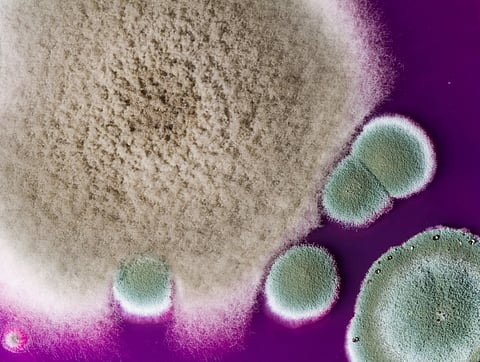TUESDAY, Nov. 14, 2023 (HealthDay News) -- Excess mold, resulting from severe weather events, has potentially harmful health consequences, and high-efficiency particulate air (HEPA) filters are the most effective for removing airborne particles, according to two studies presented at the annual meeting of the American College of Allergy, Asthma & Immunology, held from Nov. 9 to 13 in Anaheim, California.
Amber Hardeman, M.D., M.P.H., from Tulane University in New Orleans, and colleagues conducted a scoping review of articles on flooding and mold exposure after natural disasters to assess the strength of evidence supporting common recommendations provided by physicians. The researchers found that moisture deteriorates building materials and furnishings, which can lead to mold growth and material release. Increased mold growth and aeroallergen levels are seen as a result of higher precipitation, exacerbating air quality issues and triggering asthma in those at risk. Local hospitals witness a nearly twofold increase in diagnosis codes related to mold exposure after storms. When mold counts exceed 1,000 spores/m3, individuals with asthma have a 2.16-fold higher mortality risk.
Gráinne Cunniffe, Ph.D., from Trinity College Dublin, and colleagues reviewed the current literature relating to air cleaning technologies. The researchers found that HEPA filters are still the most effective for removal of airborne particles, including allergens and fine particulate matter. For removing volatile organic compounds and odors, activated carbon filters are highly effective. For reducing certain organic pollutants, photocatalytic oxidation systems show promise and are an area of rapid growth. Ozone-based air cleaning and ionizers should be avoided due to the release of harmful ozone gas.
"This study provides an update on state-of-the-art air cleaning technology to equip doctors to advise their patients," Cunniffe said in a statement.
Press Release
More Information


